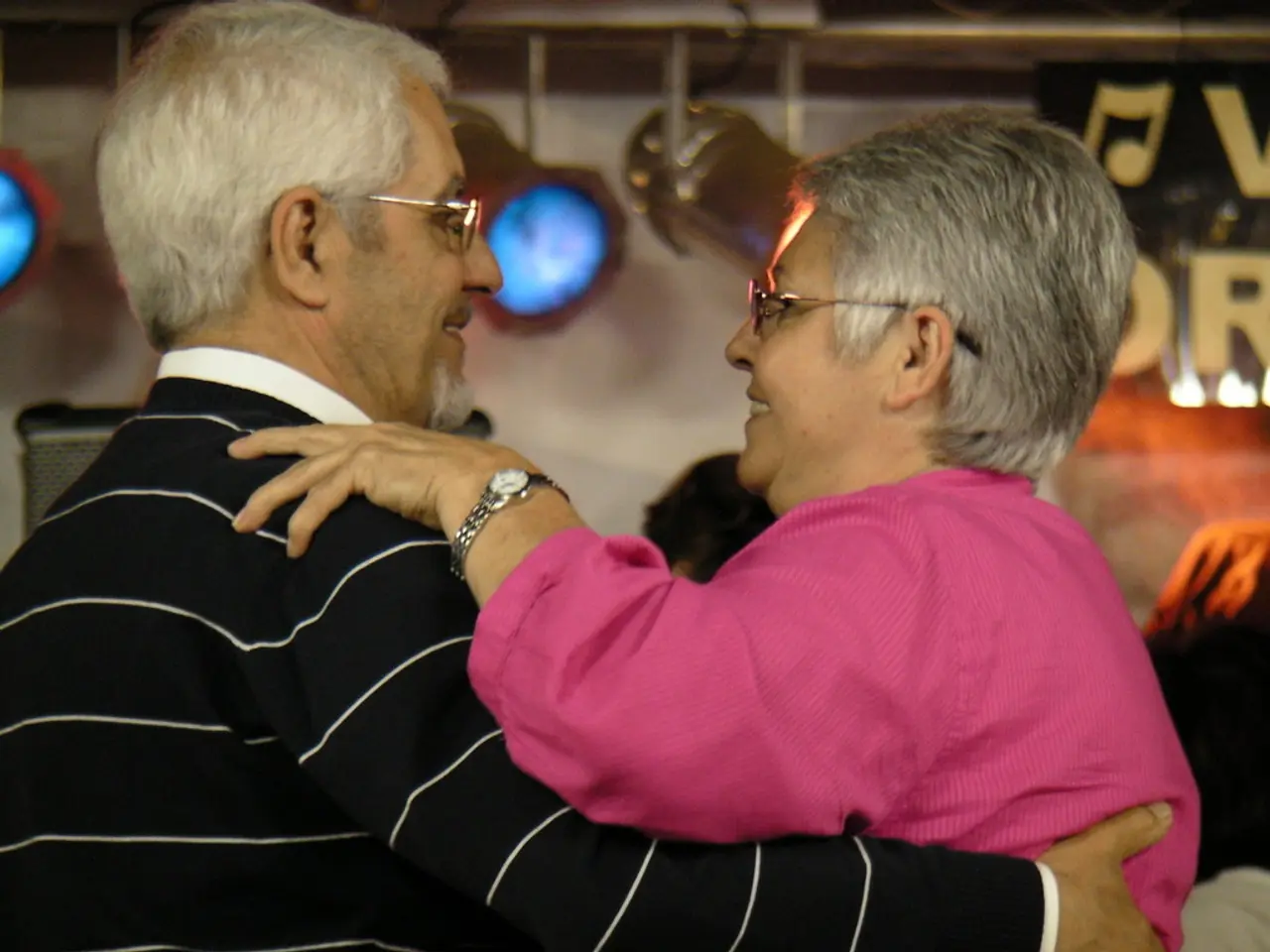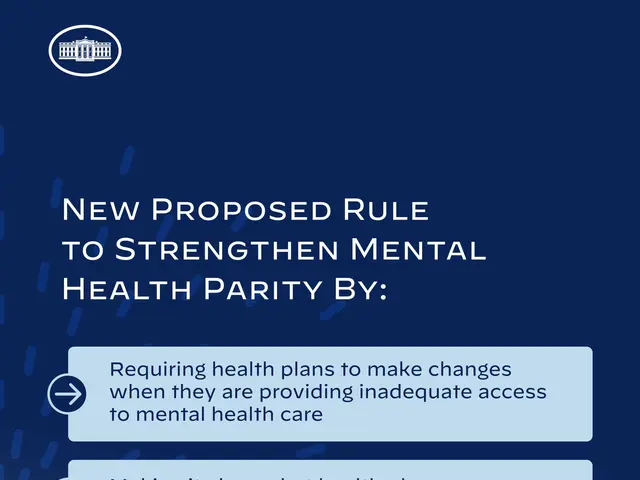Sudden bouts of coldness: Understanding causes, treatment, and reaching out for assistance
Cold flashes, although less commonly discussed than their hot counterparts, can be a distressing experience for many individuals. These sudden feelings of coldness, often accompanied by shivering and goosebumps, can occur due to various reasons, including hormonal fluctuations, anxiety, and menopause.
Causes
Cold flashes related to hormonal fluctuations, anxiety, and menopause primarily stem from changes in hormone levels, particularly the decline and fluctuations of estrogen. During perimenopause and menopause, estrogen production declines or shifts rapidly, affecting the brain’s temperature regulation centers, notably the hypothalamus. This dysregulation causes the brain to become highly sensitive to changes in ambient temperature, blood sugar drops, and stress hormones, triggering cold flashes[1][2].
Anxiety and stress can also exacerbate these episodes by increasing stress hormones that interfere with temperature regulation. Anxiety heightens the body's stress response, which can lead to sensations of chills or cold flashes even without external cold stimuli[1][2].
Symptoms
Besides the sudden feelings of coldness or chills, other symptoms associated with cold flashes include shivering or goosebumps despite ambient temperatures that are not cold, and sometimes alternating with or accompanied by hot flashes and night sweats. Accompanying symptoms related to menopause such as mood changes, irritability, and sleep disturbances may also be present[1][3][5].
Management Strategies
Managing cold flashes involves a combination of lifestyle adjustments, medical therapies, and addressing anxiety and sleep problems comprehensively.
- Lifestyle and Supportive Measures:
- Wearing layered, breathable clothing to easily adjust to temperature changes
- Using cooling tools or warming aids as needed (fans for hot flashes, warm blankets or layers for cold flashes)
- Stress reduction techniques such as mindfulness, meditation, and relaxation exercises to help manage anxiety-triggered episodes
- Avoiding known triggers like caffeine, alcohol, spicy foods, and smoking which may worsen temperature symptoms[2][3]
- Medical Therapies:
- Hormone Replacement Therapy (HRT) can help stabilize fluctuating estrogen levels, reducing both hot and cold flashes in many women[1][3]
- Non-hormonal pharmacologic options may be considered especially if HRT is contraindicated; these include certain antidepressants or other medications that modulate neurotransmitters affecting temperature regulation
- Psychological therapies or anxiolytic medications if anxiety is a substantial contributing factor[1][5]
- Sleep and Mood Management:
- Addressing sleep issues related to nighttime cold or hot flashes through sleep hygiene, and if needed, medical intervention for insomnia
- Mood stabilizers or counseling to help with irritability and mood swings linked with hormonal changes[4][5]
It's essential to consult a healthcare professional if cold flashes are frequent or impact the person's daily life. A doctor may order blood tests to check a person's hormone levels and ask questions about the occurrence of the cold flashes.
References: [1] Mayo Clinic. (2020). Hot flashes and night sweats. Retrieved from https://www.mayoclinic.org/diseases-conditions/menopause/in-depth/hot-flashes/art-20048038 [2] National Health Service (NHS). (2020). Hot flushes: causes, symptoms, and treatment. Retrieved from https://www.nhs.uk/conditions/hot-flushes/ [3] North American Menopause Society. (2017). Hot flash management: an endocrine society clinical practice guideline. Retrieved from https://www.menopause.org/docs/default-source/downloads/hot-flash-management-an-endocrine-society-clinical-practice-guideline.pdf [4] American College of Obstetricians and Gynecologists. (2017). Management of menopause-related vasomotor symptoms. Retrieved from https://www.acog.org/clinical/clinical-guidance/committee-opinion/articles/2017/08/management-of-menopause-related-vasomotor-symptoms [5] National Institute on Aging. (2020). Menopause and aging: what women need to know. Retrieved from https://www.nia.nih.gov/health/menopause-and-aging-what-women-need-know
- Hormonal imbalances, especially the drop and fluctuations in estrogen levels, can lead to cold flashes, especially during perimenopause and menopause, as they affect the brain's temperature regulation centers.
- Mental health issues like anxiety and stress can exacerbate cold flashes by increasing stress hormones that interfere with temperature regulation.
- Cold flashes can manifest as sudden feelings of coldness or chills, accompanied by shivering, goosebumps, and possibly alternating with or accompanied by hot flashes and night sweats.
- Menopause-related symptoms such as mood changes, irritability, and sleep disturbances may be present alongside cold flashes.
- Lifestyle adjustments, such as wearing layered, breathable clothing, using cooling tools or warming aids as needed, and stress reduction techniques, can help manage cold flashes.
- Avoiding known triggers like caffeine, alcohol, spicy foods, and smoking may help reduce temperature symptoms.
- Hormone Replacement Therapy (HRT) can stabilize fluctuating estrogen levels, reducing both hot and cold flashes in women.
- Non-hormonal pharmacologic options may be considered if HRT is contraindicated; these include certain antidepressants or other medications that modulate neurotransmitters affecting temperature regulation.
- Psychological therapies or anxiolytic medications can help manage anxiety if it is a substantial contributing factor to cold flashes.
- Addressing sleep issues related to nighttime cold or hot flashes through sleep hygiene and medical intervention for insomnia can be beneficial.
- Mood stabilizers or counseling can help with irritability and mood swings linked with hormonal changes.
- Consulting a healthcare professional is essential if cold flashes are frequent or impact daily life, as they may order blood tests to check a person's hormone levels and inquire about cold flash occurrences.
- Health conditions such as COPD, diabetes, ulcerative colitis, Crohn's disease, and hepatitis can also trigger cold flashes, highlighting the importance of comprehensive health-and-wellness and mental-health care, especially for women's health during menopause.




